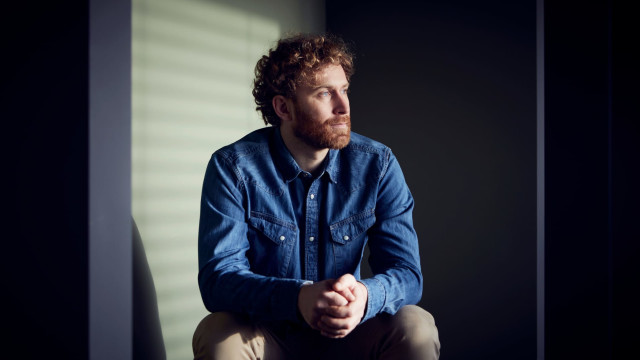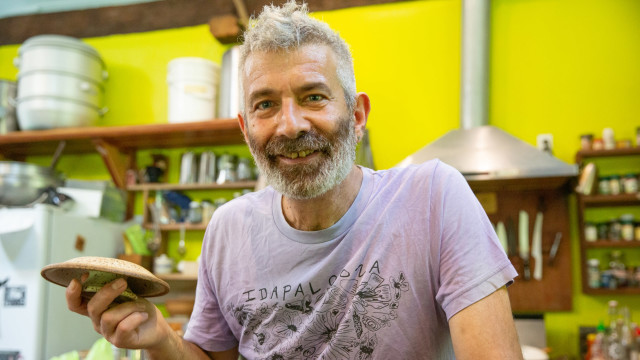This App Can Make You Healthier

Mental health issues are incredibly common worldwide. They affect people of all ages in every country, regardless of economic status. The COVID-19 pandemic didn’t help matters when it triggered a significant surge in mental health issues globally. This rise will likely have long-term social and economic effects, impacting the wellbeing of people around the world.
In the U.S. alone, there are an estimated 57.8 million adults with a mental health issue. That is more than one in five U.S. adults. Over half of those who have been diagnosed with a mental health issue do not receive treatment. Add to that the estimated millions of people in the country who are never diagnosed, and it’s clear that there’s a massive gap in mental health support. As the pandemic recedes, a new class of digital mental health apps has emerged, promising to close the gap in care by providing accessible and convenient support for mental and overall wellbeing.
The Mental Health Treatment Gap
Seeking help for mental health concerns can be challenging, even as these issues are on the rise. According to a 2021 survey across 10 countries, 58% of people with clinical level mental health risks did not seek help. The top two reasons U.S. adults did not seek care were a lack of confidence in the mental health system followed by a lack of knowledge of what kind of help to seek. People also face barriers to care like prohibitive costs, fear of stigma, and lack of resources in their geographical area. And access to high-quality, evidence-based mental health care may vary significantly across different racial, ethnic, sexual, and gender identities.
The Promising Rise of Digital Mental Health Apps
“Globally, there are simply not enough mental health clinicians. To reach everyone, we need technology to help,” says Dr. John Torous, director of digital psychiatry at Beth Israel Deaconess Medical Centre at Harvard Medical School. In response, a slew of digital mental health apps have emerged as a highly scalable, constantly accessible, less stigmatizing, far more cost-effective, and culturally adaptable solution. And they are already beginning to transform mental health care in the U.S. and around the world.
Think about it: These apps can reach people in remote areas, providing 24/7 support using evidence-based practices while still allowing for personalized interventions. They are ushering out an era where mental health care has been primarily utilized like physical health care — only in times of need. For addressing mental health, this is not sufficient. Instead, app-based solutions offer the potential to provide ongoing, preventive care. While digital mental health apps are not always a substitute for services with trained professionals, particularly in severe cases, they can be effective, complementary tools to support overall wellbeing. This will help to avert many mental, social, and economic problems.
How Roundglass Is Changing the Game
Yet, mental health issues don’t exist in a vacuum. To truly create high-impact solutions, it is critical to recognize that mental health represents only one aspect of wellbeing. Wellbeing also includes our physical, social, and spiritual health, which is impacted by our relationships, resilience from stress, and overall meaning, purpose, and satisfaction with life. To truly thrive, we need an approach that recognizes these diverse domains of wellbeing and acknowledges the extent to which they are interconnected and impact each other. Yet, in a 2022 study of 578 digital mental health apps, researchers found that most apps are very similar and offer only mentally-focused features with few innovations that treat the whole person.
To fill this critical void for integrative solutions in the digital mental health app marketplace, Roundglass has developed a treatment model called Reframe that offers a wholistic approach to wellbeing by combining a full spectrum of science-backed, mind-body practices. Wholistic Wellbeing is about living a healthy, happy life, full of meaning and connection. The “W” in “Wholistic” is intentional: W for Whole. Far from a narrowly prescribed set of beliefs, intentions, or actions, Wholistic Wellbeing is a journey that returns us to the essentials of balanced, healthy living and creates a ripple effect that improves overall health.
Dr. David Vago, the Roundglass research lead and former director of research for the Osher Center for Integrative Medicine at Vanderbilt University notes that, “Reframe will include mind-body practices, such as meditation, yoga, breathwork, therapeutic music, and healthy eating practices. All these practices emphasize the use of one’s mental capacity in conjunction with the intuitive wisdom of the body to assist in promoting health and wellness, and in the process of transformative healing.”
With the use of cutting-edge technology, Reframe will uniquely integrate these evidence-based, mind-body practices with clinically based skills into one life-changing user experience. This treatment model will be delivered through the mobile app, Roundglass Living, providing personalized support that uniquely bridges the gaps in mental health care while empowering people around the world to begin a lifelong journey of wellbeing.









